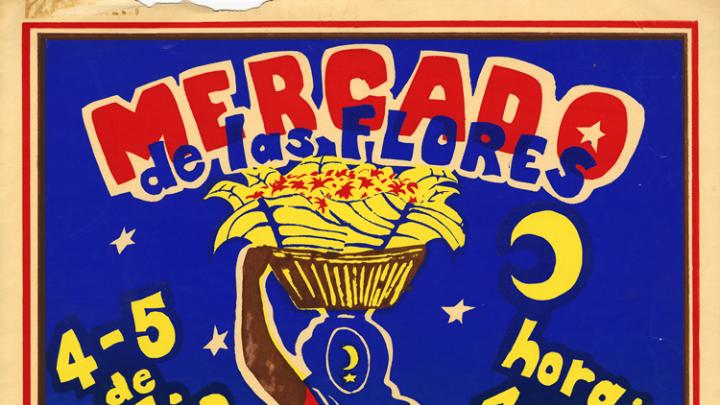The lobby of Houghton Library—Harvard’s repository for rare books and manuscripts (as well as theatre and performing arts archives)—greets visitors with streaks of midnight blues, electric yellows, and blood reds. Displayed within temperature- and humidity-controlled glass cases are 10 posters from the Royal Chicano Air Force, a collective of Sacramento-based artists and activists founded in 1970. The posters represent a compilation of the group’s activist endeavors: labor strikes, festivals celebrating Indigenous identity, and community-based social programs. “Their eye-popping graphics helped to galvanize people of Mexican ancestry into a potent social and political force at a time when the derogatory term ‘Chicano’ was being reappropriated as a badge of honor and an act of defiance,” according to a plaque beneath the first poster. “Since its inception, the RCAF has drawn attention to the urgent social justice issues facing the Chicanx and Latinx communities—issues that persist almost 50 years later.”
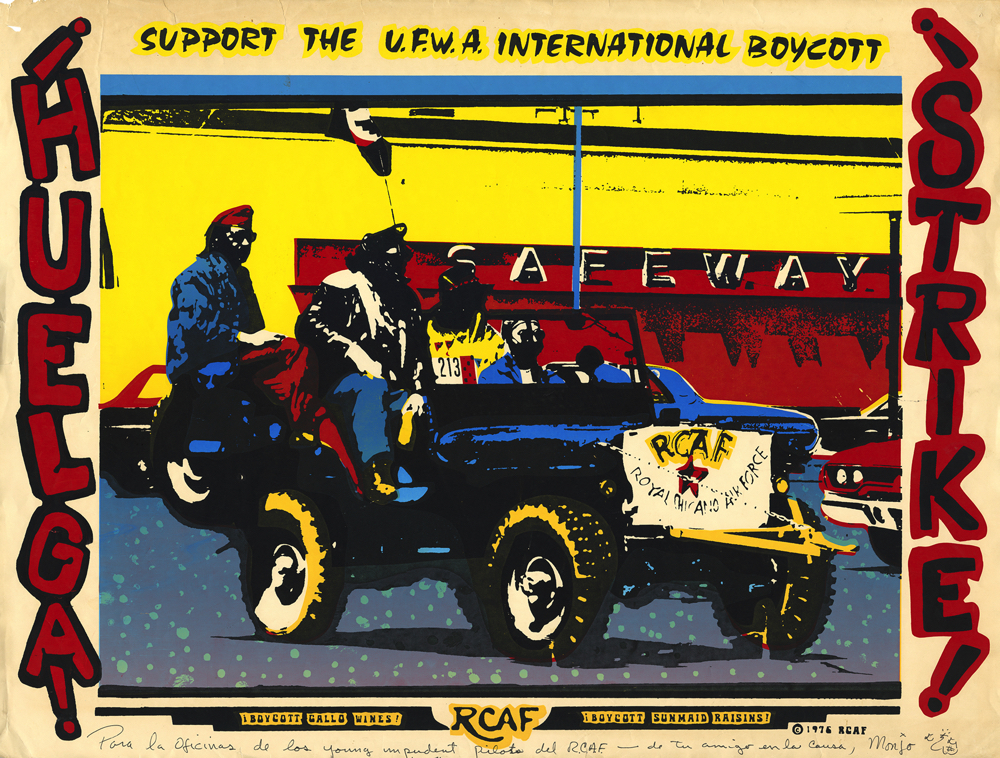
Ricardo Favela (1944–2007). ¡Huelga! ¡Strike!—Support the U.F.W.A. Screenprint on paper, 1976.
Image courtesy of Houghton Library, Harvard University
“[RCAF] became by default the official poster makers of the United Farm Workers union, who were really concerned with bettering the working conditions of migrant farmworkers, most of whom are Mexican American,” says Harvard Theatre Collection associate curator Dale Stinchcomb, M.T.S. ’11, pointing to a 1976 poster (by Ricardo Favela) with the words “SUPPORT THE U.F.W.A. INTERNATIONAL BOYCOTT” along its upper edge. Stinchcomb, who organized the show, explained that the artists created their posters by silkscreen printing. The process involves forcing ink through stencils that are held in place by a porous mesh stretched across a “screen” frame. Although labor intensive, silkscreen prints are cheap and reproducible. Thus, they’re great for activism.
In one 1975 poster by Juan Manuel Carrillo advertising a Fourth of July outdoor market, a female vendor in a red and yellow dress holds a basket of flowers atop her head (a nod to the work of Mexican muralist Diego Rivera, who frequently painted Indigenous flower vendors). But her face remains concealed behind a star and a crescent moon, positioned to look almost like a question mark. “I like to think that this is a commentary on the invisibility of Mexican American women in American society,” Stinchcomb says. “There are all these subtle or not-so-subtle political messages embedded in the posters.”
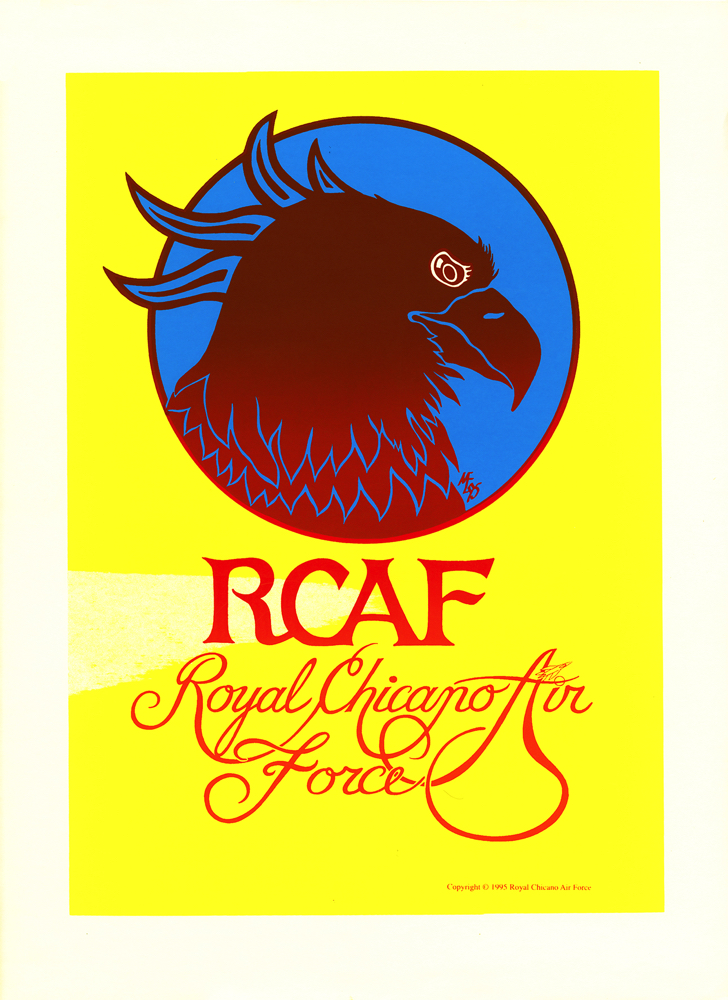
Max García (1942–2020). Royal Chicano Air Force. Screenprint on paper, 1995.
Image courtesy of Houghton Library, Harvard University
Despite military imagery and advocacy for serious issues, RCAF artists maintained a witty sense of humor as a staple of their approach—a mantra of la locura lo cura (craziness is its own cure). For example, when the group’s original name, the Rebel Chicano Arts Front, was repeatedly confused with the Royal Canadian Air Force, members adopted their current name and began presenting a mock “Air Force” persona through their art and programs. In another instance, one 1978 poster by Rodolfo Cuellar celebrates Mexican outlaw Tiburcio Vásquez alongside revered heroes of Mexico’s War of Independence from Spain (1810-1821) and the 1910 Revolution. “There’s this incredible mix of earnestness but also fun and humor [in their work]. They were fighting for their own civil rights but having fun while doing it,” Stinchcomb says. “If there can be joyous protest posters, these are joyous protest posters.”
This contemporary collection marks a new direction for Houghton Library. “It felt to me that there’s a whole language group—a whole continent of people who are not quite so far away—whose materials aren’t as heavily collected,” Stinchcomb says. He notes that the posters’ labels are in both English and Spanish.
“The Royal Chicano Air Force is not represented anywhere [else] at Harvard,” he adds. “A lot of their archives, and prints of their posters, are held by Southern California institutions, so in New England, no one knows who in the world the Royal Chicano Air Force is.” He himself didn’t know about the group until last spring when he saw some of the posters at the New York Book Fair. Stinchcomb selected the 10 posters on display from a collection of 50 acquired in 2021 from David Rasul, a longtime member of RCAF’s cultural affairs committee and a proponent of Chicano art.
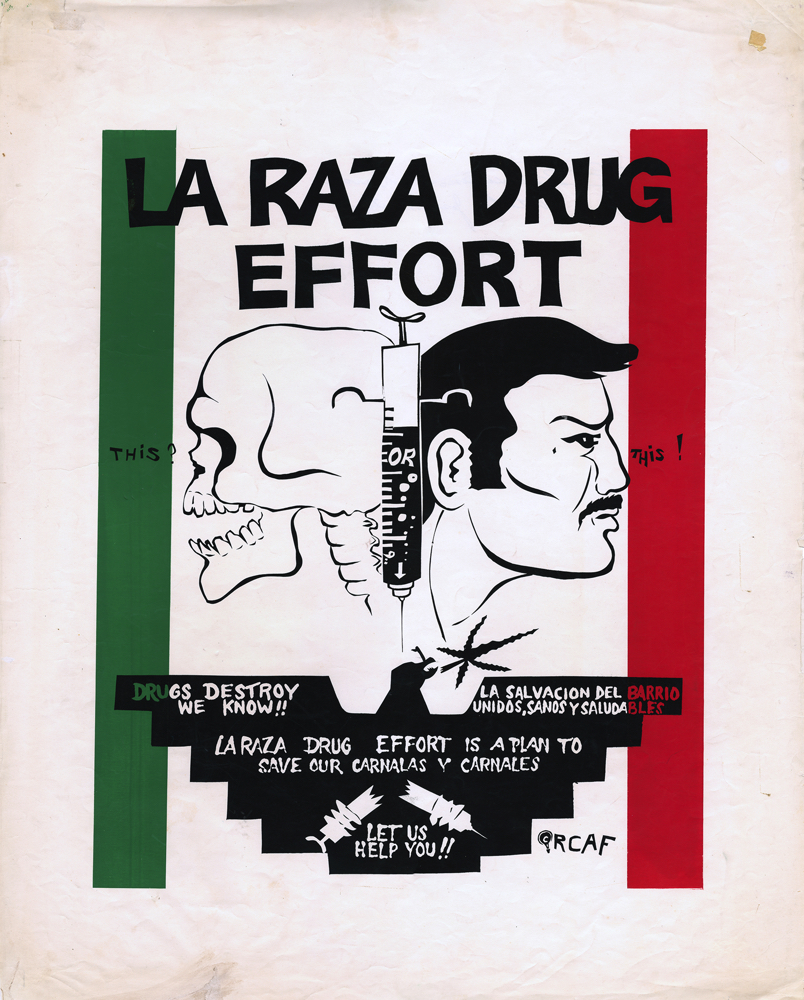
José Montoya (1932–2013). La Raza Drug Effort. Screenprint on paper, about 1974.
Image courtesy of Houghton Library, Harvard University
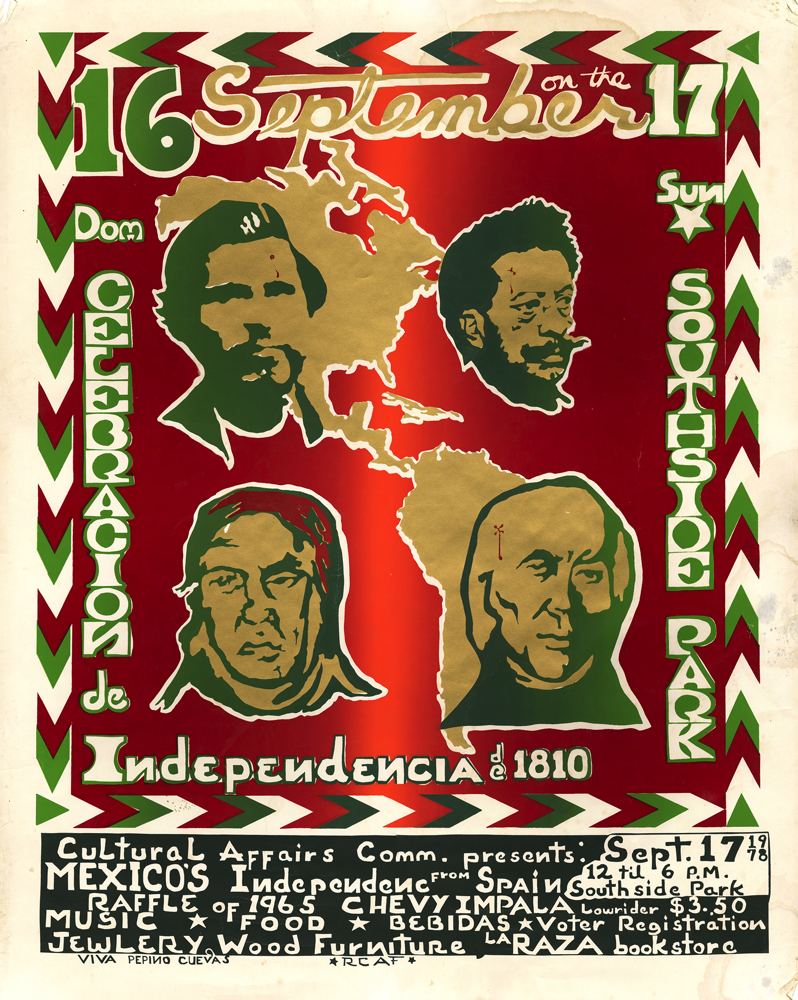
Rodolfo “Rudy” Cuellar (b. 1950). Celebración de Independencia de 1810. Screenprint on paper, 1978.
Image courtesy of Houghton Library, Harvard University
Displaying the posters now, he says, feels “particularly timely, considering the upheaval of the world we’re currently living in.” The RCAF collection captures the relentless spirit of people pursuing societal change; its posters tell a story about “how a community of Mexican Americans have celebrated and forged their own identity,” Stinchcomb says, “the growth, but also the struggle.” “A lot of the issues featured here that faced the Chicanx and Latinx community are ones that community is still fighting,” he continues. “To see that the struggle has taken this long is not demoralizing. I think it’s inspiring for some people to see that this fight is going on and will continue.”
The Royal Chicano Air Force exhibition remains on display through August 25.
